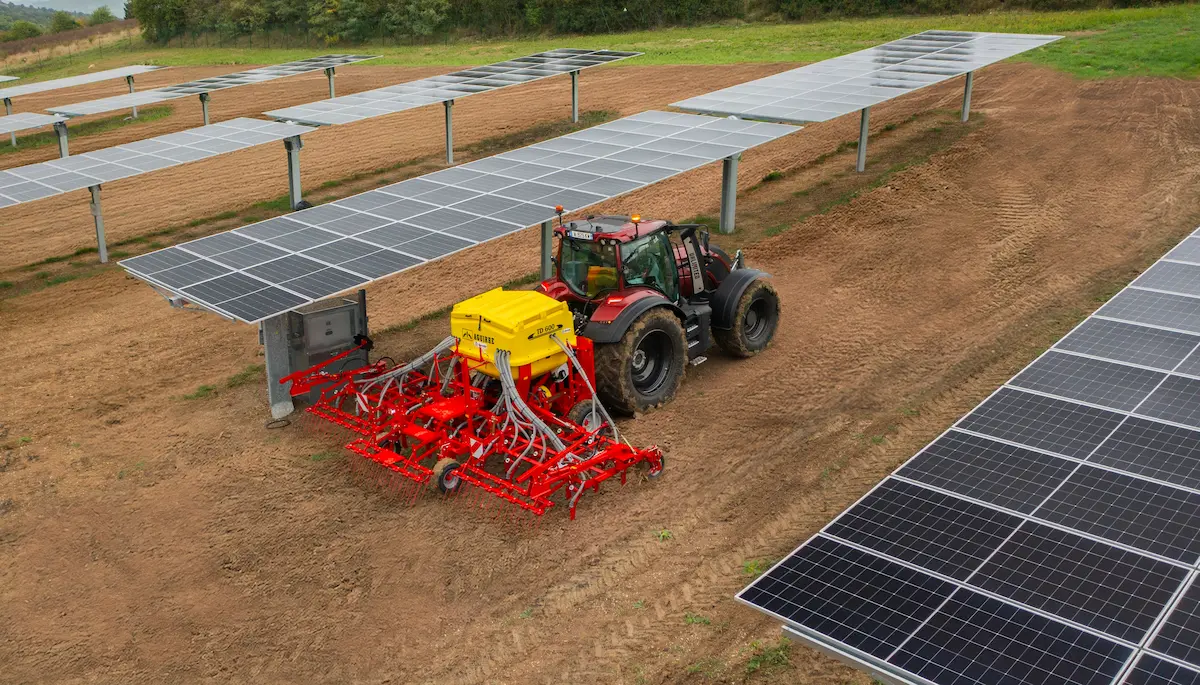Brouchy innovates with agrivoltaics and intelligent irrigation
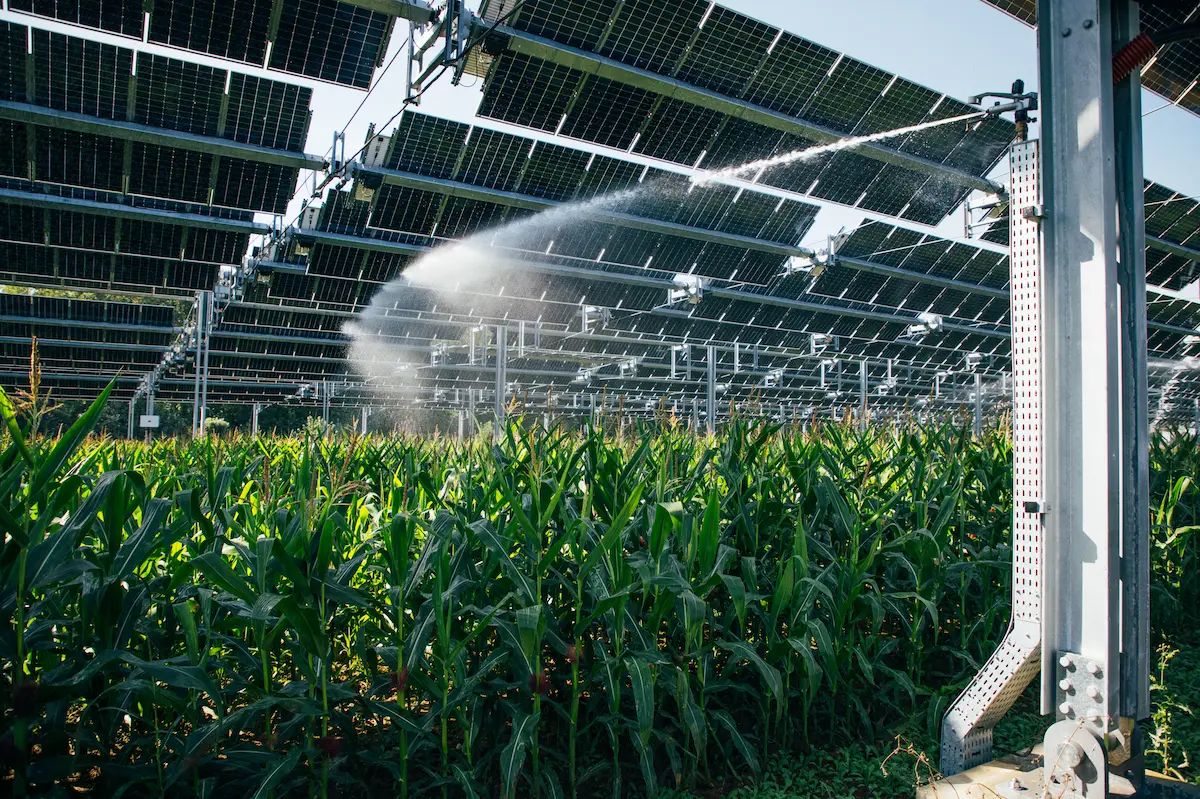
Agrivoltaic canopy and intelligent irrigation at Brouchy
On Benoît Bougler's farm, located in Brouchy in the Somme, the company TSE installed an agrivoltaic canopy covering 3 hectares in 2023. This innovative device integrates an automated irrigation system designed to optimize the use of water. Benoît Bougler thus owns the first agrivoltaic site equipped with an intelligent irrigation solution. The main objective of this installation is to better manage water resources, particularly in the context of field crops.
An innovative solution for better water management
Benoît Bougler's site is the first in France to combine an agrivoltaic system with an intelligent irrigation system. Launched in July 2023, this project received European funding through the Innovation Fund, intended to support new technologies with low carbon emissions.
Reducing heat and water stress in crops
Benoît Bougler's farm, which covers 450 hectares of useful agricultural area (UAS), has integrated an agricultural shade on 3 hectares, equipped with 5,500 rotating solar panels, installed 5 meters high. This agrivoltaic canopy, with a low footprint (only 0.5%), uses cables to support the solar panels (27 m between two poles), thus allowing agricultural machinery to easily circulate under the canopy, such as a combine harvester or a sprayer. The partial and rotating shade generated by the panels, thanks to a system of trackers that follow the movement of the sun, aims to reduce thermal and water stress in crops. This 2.9 MWc device produces a quantity of energy equivalent to the annual consumption of 1,650 households. This energy is then sold to bioMérieux, a pharmaceutical company, for a period of 20 years.
An integrated irrigation system for optimized water management
“On the plot, the plants have particularly suffered from heat and water stress in recent years, with high temperature ranges and especially long periods without water which have impacted plant growth and yields, especially in wheat and potatoes, especially in wheat and potatoes, explains Benoît Bougler. So I was looking for solutions to adapt to climate change. Irrigated agrivoltaics is one of the possible answers.”
As soon as the installation was set up, the farmer sowed maize, a crop that is particularly demanding on water. The irrigation system, integrated into the canopy, is composed of 114 irrigation cannons fixed at a height of 3 meters and arranged in a staggered manner on the solar panels. These cannons, with a range of 16 meters, are fed by the farm shaft. A remote control system, controlled by temperature, humidity, light and rainfall sensors, allows irrigation to be triggered only when necessary and at the optimal time. The operator has the possibility to control the irrigation parameters per line, to switch between a fully automated mode and a manual mode, and to monitor his water consumption.
This precise management allows water savings of the order of 20 to 30%.
>> Read also : Agrivoltaics and water management : discover our exclusive guide produced with our partner Réussir
An experimental pilot project to assess the impact on crops
The Brouchy site is also used as a testing ground. INRAE (National Institute for Agricultural Research) will conduct trials over a period of nine years to analyze the impact of agrivoltaics and irrigation on various farming practices. The results of these studies, conducted on 3 hectares covered by the canopy and 2 control hectares, will be essential to assess the effectiveness of this technology under real operating conditions. At the same time, the Somme Chamber of Agriculture will participate in experiments to measure the impact of this system on water resource management.
This ambitious project illustrates how innovation, through agrivoltaics and smart irrigation, can meet the current challenges of agriculture, by improving resource efficiency and by reducing the environmental impact of farms.
Watch the video report on the Brouchy agricultural canopy equipped with an irrigation system.
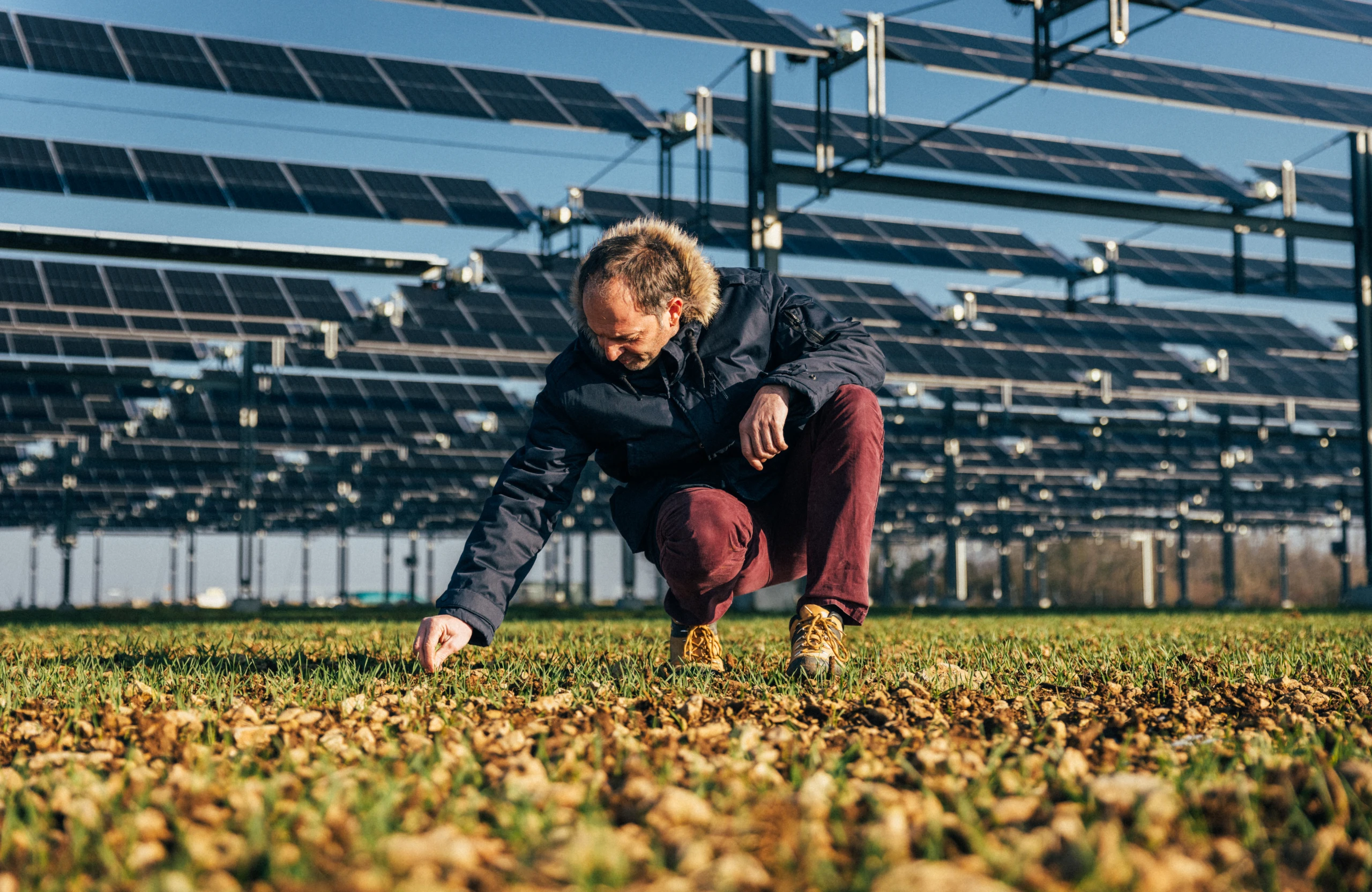
.webp)
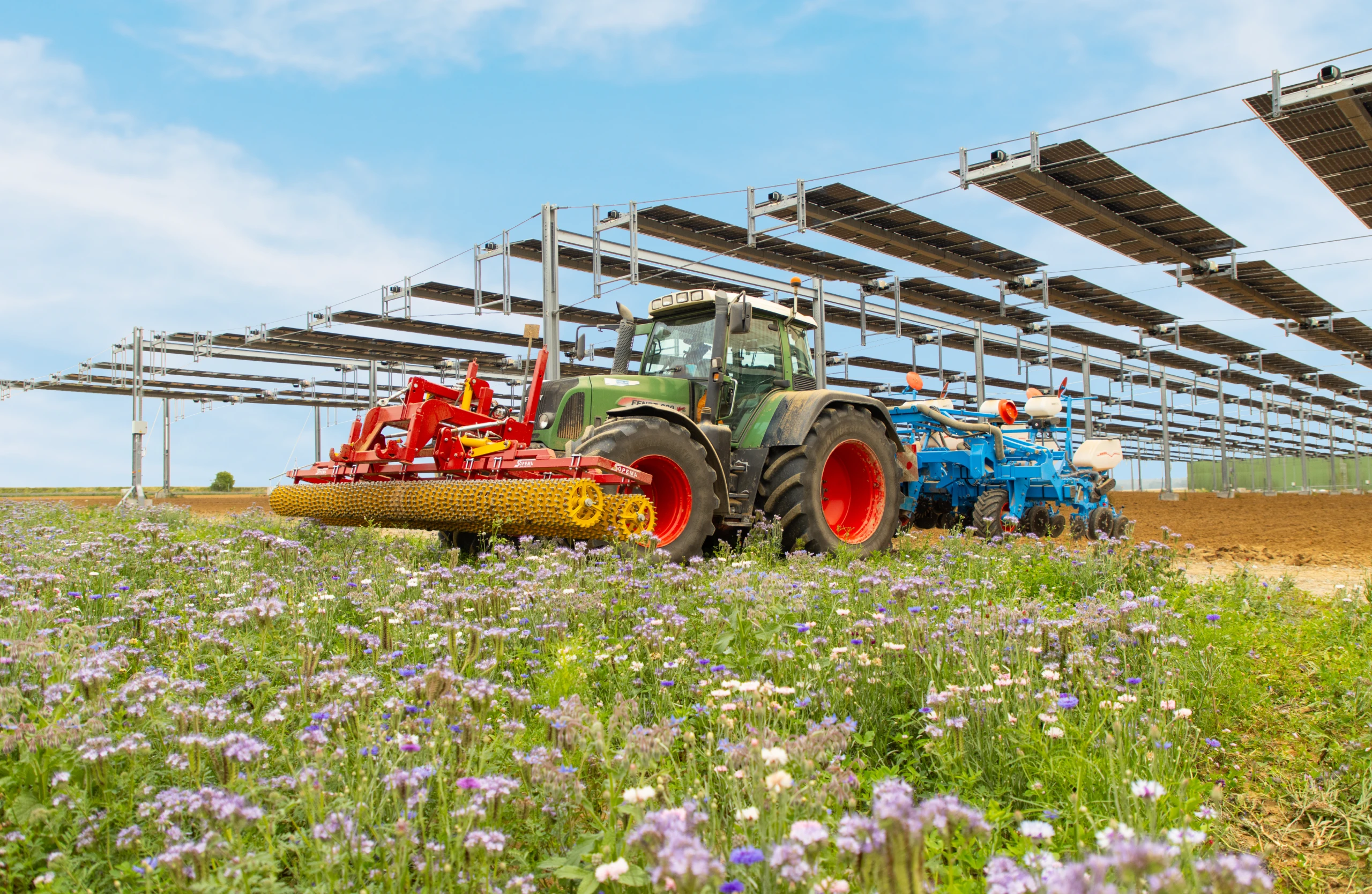
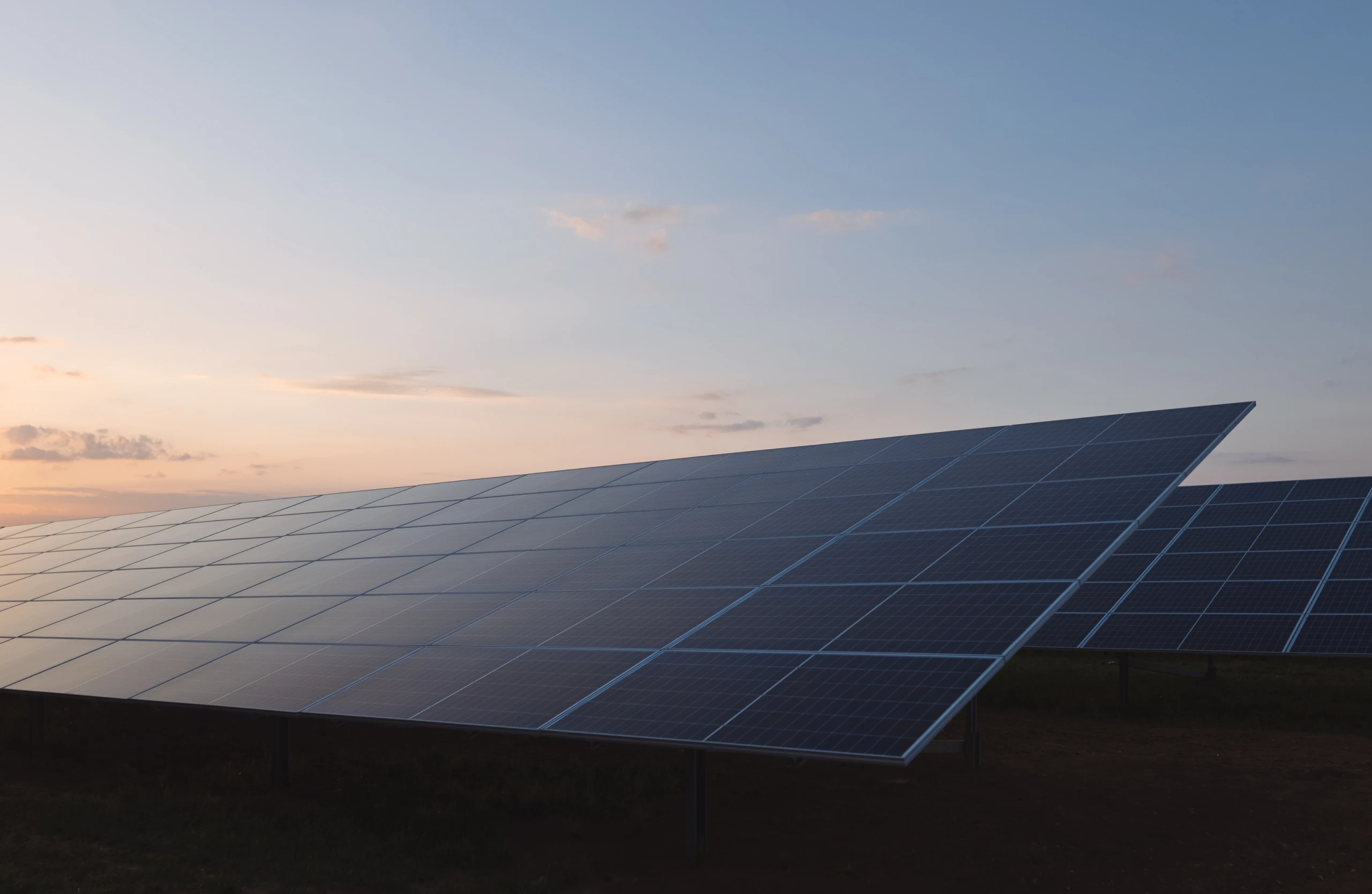
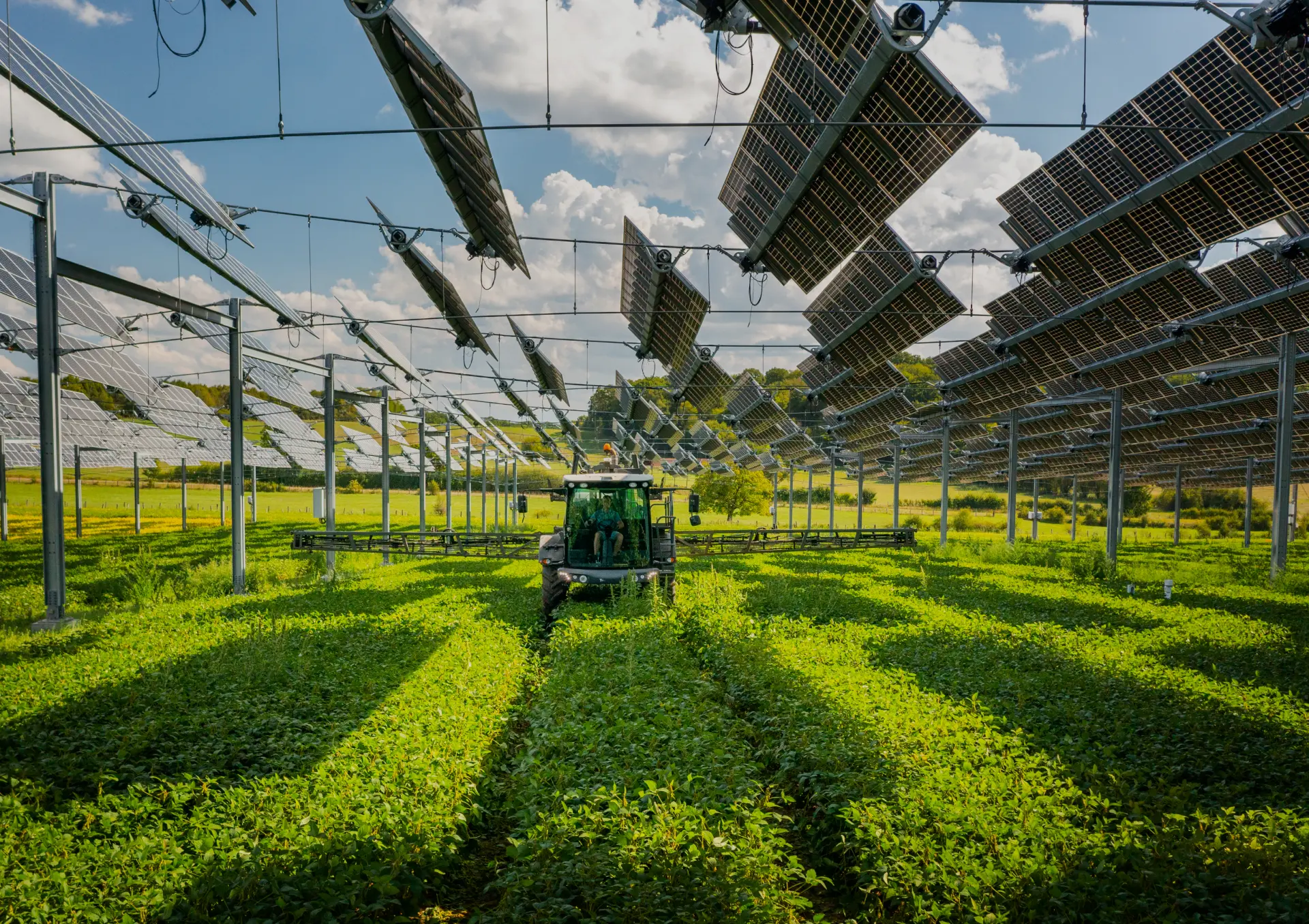
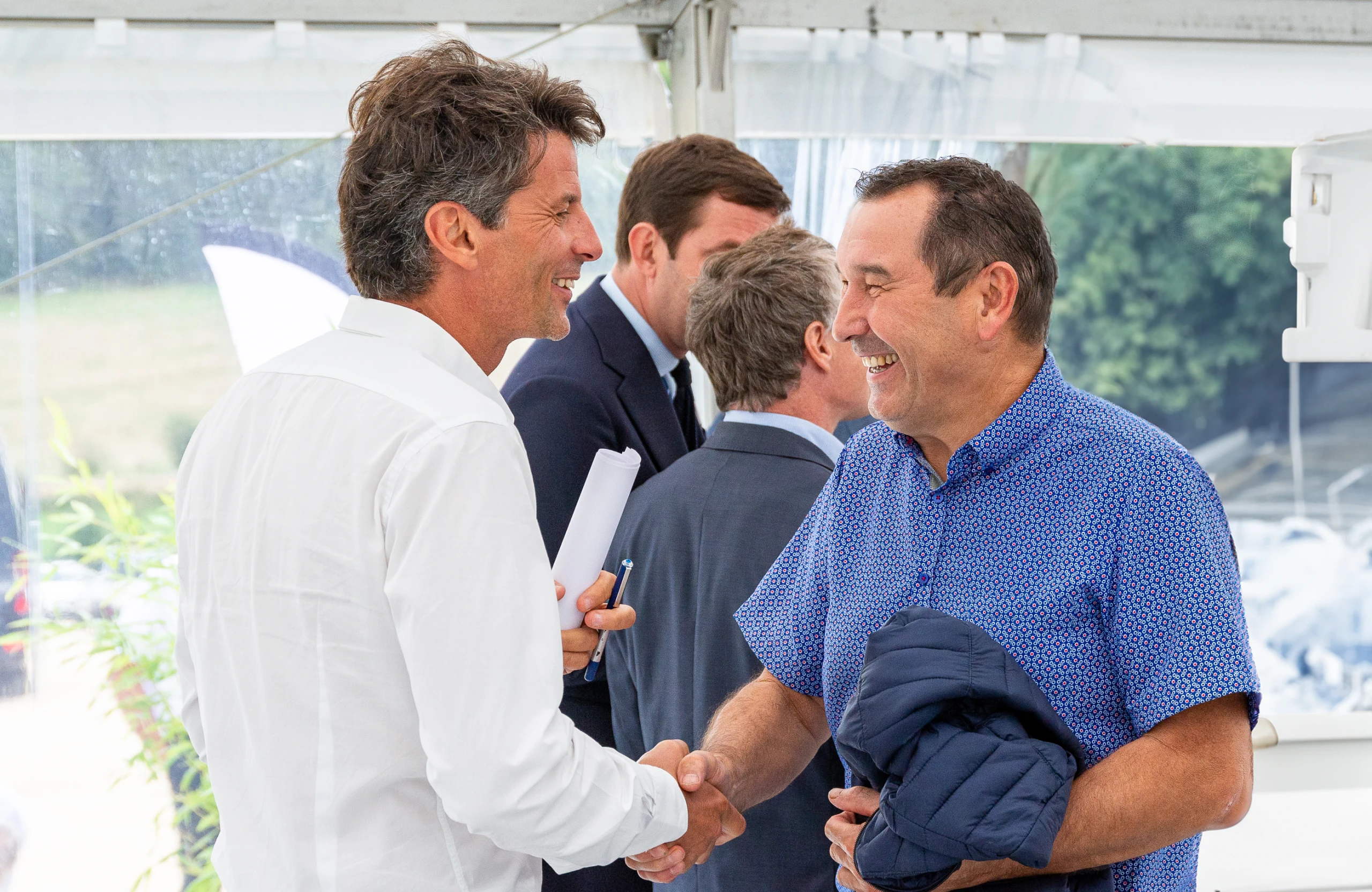


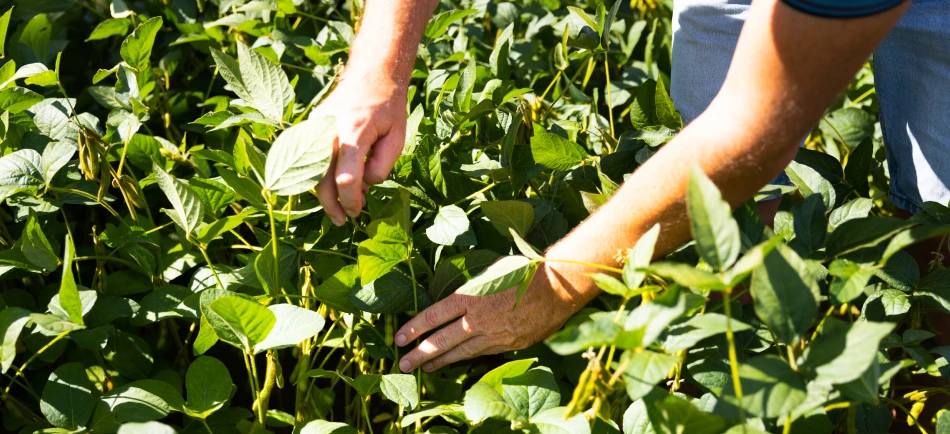
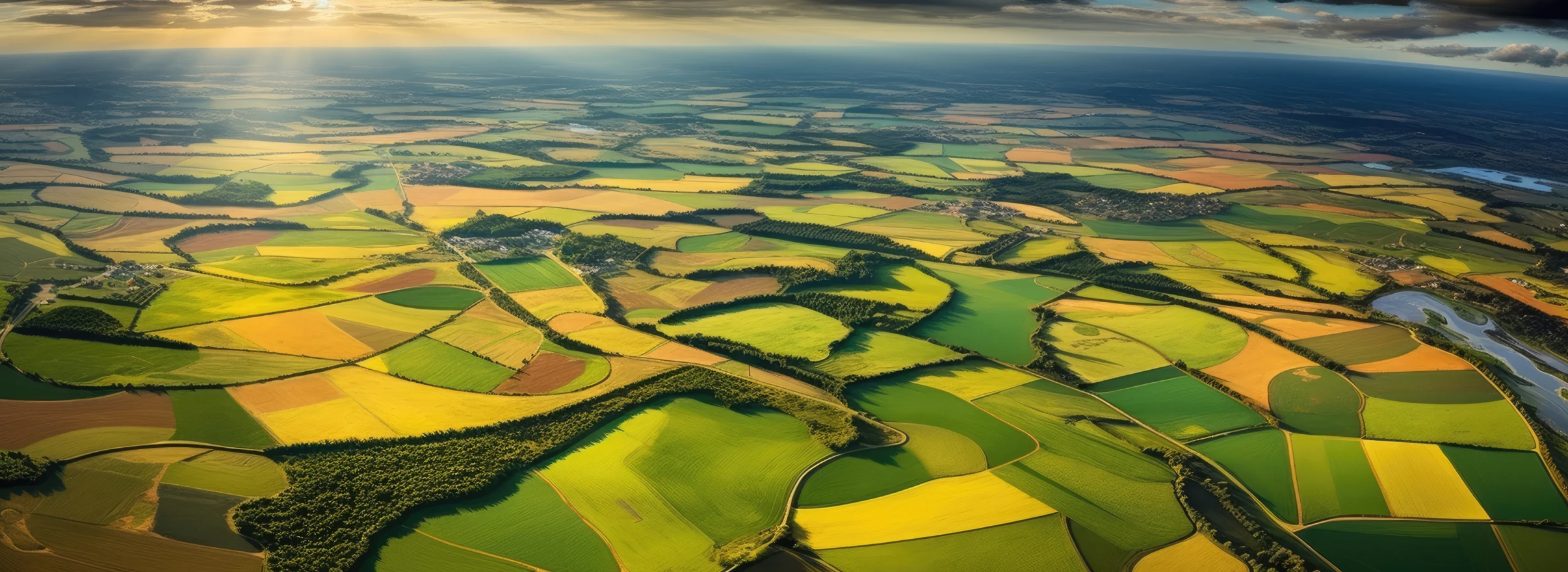
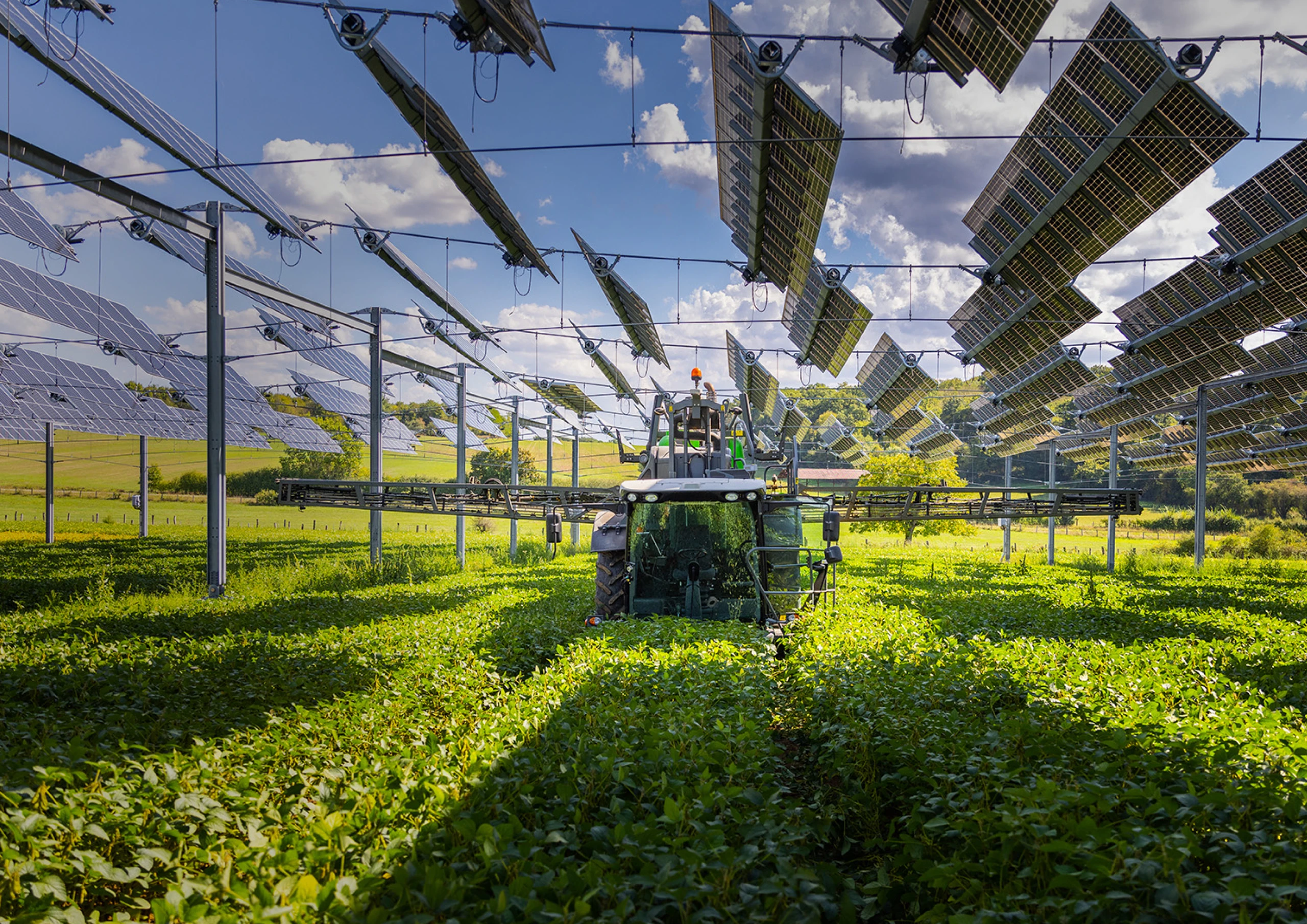
.webp)

